第28章 CHAPTER IV THE GERMAN AIR-FLEET(2)
It is impossible now to estimate how much of the intellectual and physical energy of the world was wasted in military preparation and equipment, but it was an enormous proportion. Great Britain spent upon army and navy money and capacity, that directed into the channels of physical culture and education would have made the British the aristocracy of the world. Her rulers could have kept the whole population learning and exercising up to the age of eighteen and made a broad-chested and intelligent man of every Bert Smallways in the islands, had they given the resources they spent in war material to the making of men. Instead of which they waggled flags at him until he was fourteen, incited him to cheer, and then turned him out of school to begin that career of private enterprise we have compactly recorded. France achieved similar imbecilities; Germany was, if possible worse; Russia under the waste and stresses of militarism festered towards bankruptcy and decay. All Europe was producing big guns and countless swarms of little Smallways. The Asiatic peoples had been forced in self-defence into a like diversion of the new powers science had brought them. On the eve of the outbreak of the war there were six great powers in the world and a cluster of smaller ones, each armed to the teeth and straining every nerve to get ahead of the others in deadliness of equipment and military efficiency. The great powers were first the United States, a nation addicted to commerce, but roused to military necessities by the efforts of Germany to expand into South America, and by the natural consequences of her own unwary annexations of land in the very teeth of Japan. She maintained two immense fleets east and west, and internally she was in violent conflict between Federal and State governments upon the question of univiorsal service in a defensive militia. Next came the great alliance of Eastern Asia, a close-knit coalescence of China and Japan, advancing with rapid strides year by year to predominance in the world's affairs. Then the German alliance still struggled to achieve its dream of imperial expansion, and its imposition of the German language upon a forcibly united Europe. These were the three most spirited and aggressive powers in the world. Far more pacific was the British Empire, perilously scattered over the globe, and distracted now by insurrectionary movements in Ireland and among all its Subject Races. It had given these subject races cigarettes, boots, bowler hats, cricket, race meetings, cheap revolvers, petroleum, the factory system of industry, halfpeuny newspapers in both English and the vernacular, inexpensive university degrees, motor-bicycles and electric trams; it had produced a considerable literature expressing contempt for the Subject Races, and rendered it freely accessible to them, and it had been content to believe that nothing would result from these stimulants because somebody once wrote "the immemorial east"; and also, in the inspired words of Kipling--East is east and west is west, And never the twain shall meet.
Instead of which, Egypt, India, and the subject countries generally had produced new generations in a state of passionate indignation and the utmost energy, activity and modernity. The governing class in Great Britain was slowly adapting itself to a new conception, of the Subject Races as waking peoples, and finding its efforts to keep the Empire together under these, strains and changing ideas greatly impeded by the entirely sporting spirit with which Bert Smallways at home (by the million) cast his vote, and by the tendency of his more highly coloured equivalents to be disrespectful to irascible officials.
Their impertinence was excessive; it was no mere stone-throwing and shouting. They would quote Burns at them and Mill and Darwin and confute them in arguments.
Even more pacific than the British Empire were France and its allies, the Latin powers, heavily armed states indeed, but reluctant warriors, and in many ways socially and politically leading western civilisation. Russia was a pacific power perforce, divided within itself, torn between revolutionaries and reactionaries who were equally incapable of social reconstruction, and so sinking towards a tragic disorder of chronic political vendetta. Wedged in among these portentous larger bulks, swayed and threatened by them, the smaller states of the world maintained a precarious independence, each keeping itself armed as dangerously as its utmost ability could contrive.
So it came about that in every country a great and growing body of energetic and inventive men was busied either for offensive or defensive ends, in elaborating the apparatus of war, until the accumulating tensions should reach the breaking-point. Each power sought to keep its preparations secret, to hold new weapons in reserve, to anticipate and learn the preparations of its rivals. The feeling of danger from fresh discoveries affected the patriotic imagination of every people in the world. Now it was rumoured the British had an overwhelming gun, now the French an invincible rifle, now the Japanese a new explosive, now the Americans a submarine that would drive every ironclad from the seas. Each time there would be a war panic.
The strength and heart of the nations was given to the thought of war, and yet the mass of their citizens was a teeming democracy as heedless of and unfitted for fighting, mentally, morally, physically, as any population has ever been--or, one ventures to add, could ever be. That was the paradox of the time. It was a period altogether unique in the world's history. The apparatus of warfare, the, art and method of fighting, changed absolutely every dozen years in a stupendous progress towards perfection, and people grew less and less warlike, and there was no war.